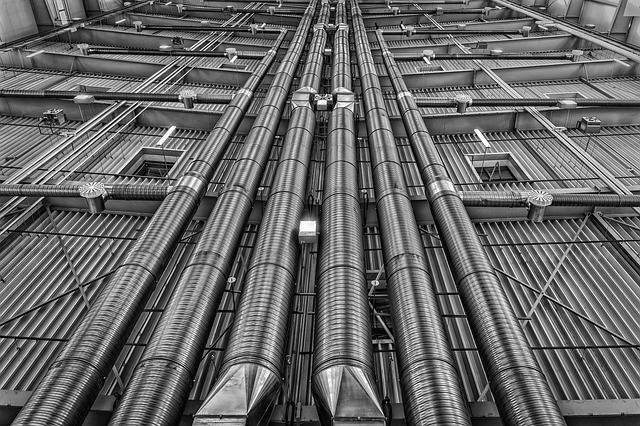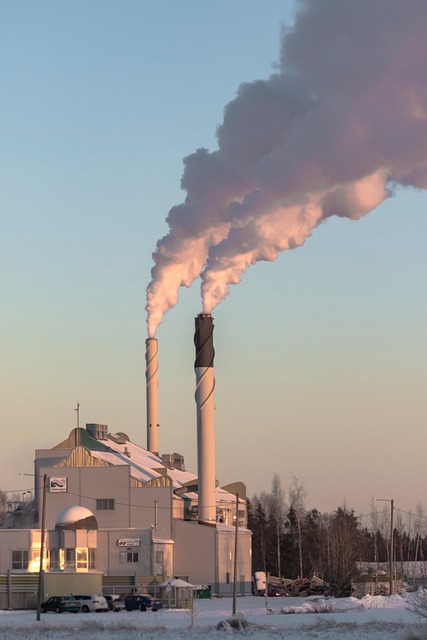Commercial gas water heaters with condensing technology and tankless models offer advanced energy savings up to 40%, reducing operational costs and environmental impact. These systems capture exhaust heat, enhancing efficiency for institutional settings like restaurants and hotels. Proper installation and modern designs further optimize energy recovery in commercial gas water heaters.
Commercial gas water heaters are essential for many businesses, but maximizing their energy efficiency is crucial for cost savings and sustainability. This article delves into the world of these heaters, focusing on energy recovery efficiency—a strategy to enhance performance. We explore the basics of energy recovery, its benefits in commercial settings, and practical tips for optimization. By understanding and implementing best practices, businesses can ensure efficient water heating, reducing operational costs and environmental impact.
- Understanding Commercial Gas Water Heaters
- Energy Recovery Efficiency: The Basics
- Maximizing Energy Efficiency in Heating
- Best Practices for Condensing Systems
Understanding Commercial Gas Water Heaters

Commercial gas water heaters are a vital component in many businesses and institutions, from restaurants to hotels, providing hot water for various applications. These systems typically employ storage tank heaters or tankless gas heaters, offering either a large capacity for high-demand facilities or on-demand heating for precise control. Gas fired water heating is known for its efficiency and reliability, making it a preferred choice in commercial settings where consistent hot water supply is crucial.
Understanding how these systems work is essential when aiming to maximize energy recovery efficiency. Traditional storage tank heaters can be improved with condensing technology, which captures the waste heat from condensation, thereby increasing overall energy efficiency. For institutional heating needs, this approach translates into significant cost savings and a smaller environmental footprint. High-capacity heaters and tankless gas heaters specifically designed for commercial hot water systems offer advanced features like precise temperature control and faster recovery times, further enhancing energy-saving capabilities.
Energy Recovery Efficiency: The Basics

Energy Recovery Efficiency, at its core, refers to the process of capturing and utilizing heat that would otherwise be lost during various activities. In the context of commercial gas water heaters, this means maximizing the energy content of the natural gas used for heating water. By recovering heat from the exhaust gases or the cooling cycle, these systems can significantly boost their overall efficiency. This is particularly crucial in institutional settings like restaurants and hotels where large volumes of hot water are required daily.
Commercial hot water systems that employ condensing technology are at the forefront of this energy-saving revolution. Unlike traditional storage tank heaters, gas fired water heating systems with condensing capabilities can recover heat from exhaust gases, boosting their efficiency by as much as 40%. This not only translates to substantial cost savings but also reduces environmental impact through lower greenhouse gas emissions. High capacity heaters and tankless gas heaters, for instance, offer efficient and reliable hot water solutions for various applications, including restaurant water heating and hotel hot water systems, ensuring consistent institutional heating with minimal energy waste.
Maximizing Energy Efficiency in Heating

In the realm of commercial gas water heaters, maximizing energy recovery efficiency is paramount for both cost savings and environmental sustainability. By focusing on condensing water heaters, businesses can significantly enhance their energy-efficient systems. These innovative devices capture heat that would otherwise be lost in the exhaust gases, effectively recycling it to heat incoming water. This process not only improves gas fired water heating but also reduces overall energy consumption, making them an ideal choice for high capacity heaters in restaurants, hotels, and institutional settings.
Condensing technology is particularly effective in commercial hot water systems due to their constant demand for hot water. Traditional storage tank heaters often leave substantial heat unutilized, whereas tankless gas heaters offer a more efficient alternative. By eliminating the need for a large storage tank, these energy-efficient systems provide instant hot water while minimizing waste. For businesses aiming to optimize their institutional heating and reduce utility costs, condensing water heaters represent a game-changing solution that underscores the importance of embracing high-tech, eco-friendly technology in today’s world.
Best Practices for Condensing Systems

To maximize energy recovery efficiency in commercial gas water heaters, several best practices should be implemented. One key practice is to opt for condensing water heaters, which capture and reuse the heat that would otherwise be lost up the exhaust flue. This technology is particularly effective for gas fired water heating systems due to their higher fuel input. By condensing and recovering this heat, commercial hot water systems can significantly reduce energy consumption, making them an excellent choice for high capacity heaters in restaurants, hotels, and institutional settings.
Additionally, proper installation and maintenance are crucial. This includes ensuring adequate ventilation and exhaust systems to prevent the buildup of condensation and maintain optimal operating conditions. Regular cleaning and inspection of these systems are also essential to prevent mineral deposits and corrosion, which can impede efficiency. When considering commercial gas water heaters, switching to tankless gas heaters or storage tank heaters with modern energy-efficient designs can further enhance energy savings without compromising hot water supply for institutional heating needs.
Commercial gas water heaters, with their advanced condensing technology, offer a promising path toward maximizing energy recovery efficiency. By harnessing the power of condensate and improving heat transfer, these systems significantly reduce energy wastage. Implementing best practices for condensing systems ensures optimal performance, contributing to both cost savings and environmental sustainability in commercial settings. Embracing these innovations is a step towards a greener future, where efficient water heating becomes an integral part of sustainable operations.






